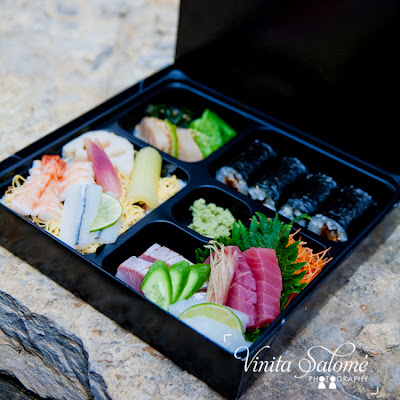embrandt and Kiki are red-headed twins who are moving to the Netherlands. Their mother is Dutch and their father is English so they both speak two languages. These bilingual twins are mischievous and love a good adventure. I have a feeling my sons will be getting to know Kiki and Rembrandt quite well. Oh, and these 'new in town' twins are completely fictitious.
They are the brainchild of British expat Jane Archer-Wilms and Dutch national Marlies Veenhof who have colluded to create a series of books aimed at helping children improve their Dutch and/or English language skills. I caught up with them to ask them about the book series, their future plans and life before Rembrandt and Kiki.
.JPG) |
| Jane Archer-Wilms & Marlies Veenhof |
Firstly, I wanted to know how they met. It turns out, like so many blossoming friendships, the two women met on a school playground, not as childhood friends but as mothers. They explain further,
"Our children go to the same Dutch primary school and we were both pregnant with our third child at the same time.... playground chat turned to regular meeting up and the friendship grew from there."
The next logical step was to write a series of books together. Right? Well, not quite but the idea was born from the desire to balance motherhood with work they could do around their children. Jane had recently stopped working at the British school in the Netherlands and Marlies was working one day a week as a primary school teacher to be able to focus more on their expanding families. Both women admit they found the idea of full time motherhood daunting and wanted a happy medium between parenting and putting the skills they had gained from years as teachers to good use. One afternoon, whilst at a children's playground, the idea of creating a bilingual book came to life.
And what do they hope to achieve with their bilingual books? Well, that's easy. Jane explains,
"World-wide fame and a seven figure salary..... Or we would settle for knowing that we have created something that children love but that also serves a purpose."
And where do the names Rembrandt and Kiki from? I naturally assumed Marlies had a hand in the choosing of the name Rembrandt but I couldn't have been more wrong. Whilst Marlies chose the name Kiki, a character that incidentally reminds her of herself as a child, Rembrandt turns out to be Jane's choice of name. It is not only a typically Dutch name, but one that Jane loves, so much so that she had the name on the list of potential names for her own sons. Her husband vetoed it but she's happy she got to name at least one boy Rembrandt in the end.
Choosing names for the book's main characters was not only the fun they had whilst creating the books. Marlies elaborates,
"For us, writing the books is the most fun. Trying to think how children think, and what they would find funny is fantastic. The translations can take weeks, as we want to stay true to both languages without compromising the story-line. It is also so exciting to see the illustrations when
Sarah (Wills, illustrator) sends them through – it all comes so much to life then."
And for all budding children's book authors out there, Jane and Marlies reveal exclusively here on this blog the secret to finding a brilliant, quirky illustrator that matches perfectly with the ideas you had for your characters and their adventures,
"We were very cutting-edge in our illustrator-seeking strategy..... we used Google!
Sarah is a professional children’s illustrator from
Cornwall in England, and we loved her website and quirky drawing style. We approached her with our ideas for Rembrandt and Kiki, and after she sent us a few sketches, we knew we had found our illustrator."
Whilst the humour in the Rembrandt and Kiki books is aimed at children aged from four to eight, Jane states that the books are also useful for children of other ages.
"They can be read to younger children, and older children learning Dutch or English for the first time will find them accessible too. The children don’t need to be able to read; if the parents are not bilingual, they can use the
free audiobooks on the website (in Dutch and English)," she says.
The books have not only been created with both English speakers and Dutch children in mind, but their parents too, as Jane further explains.
"We have really tried to make the books as user-friendly as possible, in the sense that parents can read the story fully in English, fully in Dutch, in both languages page by page, or the children can listen to all the above combinations on the free audio book. The children can, if they cannot yet read, look at the pictures and find the Dutch and British flags hidden on each page. Each book has a theme to which the children can relate, and there is a vocabulary list at the back of the book which corresponds with highlighted (and often repeated) words throughout the story. In this way, parents can also use the books to develop their child’s vocabulary in the second language."
She goes on to explain that the series they are creating works in a number of ways,
"It’s a fantastic resource for English-speaking children living in The Netherlands. It works just as effectively though for Dutch children living abroad or Dutch children in The Netherlands; it stimulates the use of a second language, be it Dutch or English. The other group we have targeted is
primary schools – both Dutch and international. There is a complete scheme of work available to accompany the books, so it’s a great resource for the teaching of English or Dutch in primary schools".
Marlies, with her primary school teacher hat on, recognised that many primary school teachers felt unprepared for the introduction of teaching English to groups 1 and 2 (four to six year olds) so this series is also a means to give teachers a fun and stimulating resource to teach the younger age groups. It's an age group that both Jane and Marlies consider to be important when it comes to learning a second language.
"We think introducing a second language in the early years of school is a fantastic idea, so long as it is achievable and enjoyable for the children. We think it’s a real gift to be given the chance to learn a second language from an early age. The earlier that a child is exposed to a second language, the easier and quicker that language is to learn (as are any subsequent languages). Of course many English-speaking families in The Netherlands are here for a limited time, and we understand completely that Dutch can be a hideous language to try and pick up, particularly if you have no Dutch connections and are not here for very long. Rembrandt & Kiki is an easy and fun way of introducing and maintaining the Dutch language. It is also perhaps lovely to keep as a memento from the country in which you have lived."
And they practice what they preach too. Jane has lived in the Netherlands since 2002, and speaks Dutch (stating that it gets even better after a few glasses of wine, at least to her own ears) and her three sons are bilingual too. She also has big plans to turn Marlies' children into bilinguals, though Marlies herself needs no help with her English having taught it as a foreign language to students in North East Thailand, as well as teaching basic language skills to children in orphanages in the evenings.
And what of the future? I asked Jane and Marlies where they plan to take Rembrandt and Kiki and it turns out they have visions of European travel for the bilingual twins.
"We have big plans! We are writing an initial series of five books (plus five schemes of work for primary schools), each covering a different theme and adventure for Rembrandt and Kiki.
The first one that is available to buy now is Rembrandt & Kiki Move to The Netherlands. The second one coming out in November is Rembrandt & Kiki in the Museum, the third one is at the farm and so on. We hope to write lots more books after this initial series – covering themes such as Sinterklaas, the seasons, holidays and so on. Our big plan, however, is to translate the Rembrandt & Kiki series into other languages, to be used in exactly the same way – to further a second language in other countries as well as The Netherlands. English will always be the base language, but given time, we hope to see Rembrandt and Kiki in German, Danish and Spanish, to name but a few!"
In the short term, I asked them to fast forward a year. What achievement would have them popping champagne bottles in celebration?
"We will be 10kg lighter.... oh you mean with the books? We will hopefully have the first series of five books available in paperback and hardback, along with schemes of work, and we’ll be busy writing the next series. The books will stand proudly on our bookshelves and when asked what we do, we’ll say without hesitation that we are authors of children’s books."
 |
| Both deserving of the title "Author". For sure. |
I don't think there is any doubt that they may already call themselves authors of children's books. Wouldn't you agree?
June 2016 Update: There are now 6 titles to choose from in the Rembrandt and Kiki series!
 , British teaspoons, a blanket adorned with the British flag and a plastic British. It was mind blowingly weird.
, British teaspoons, a blanket adorned with the British flag and a plastic British. It was mind blowingly weird. 



.JPG)

.JPG)










